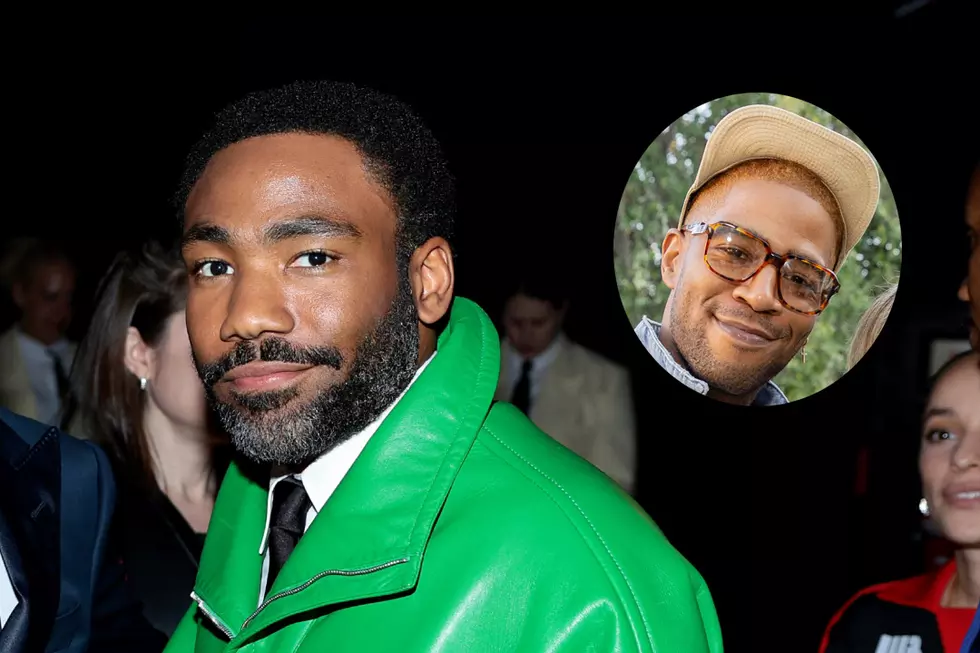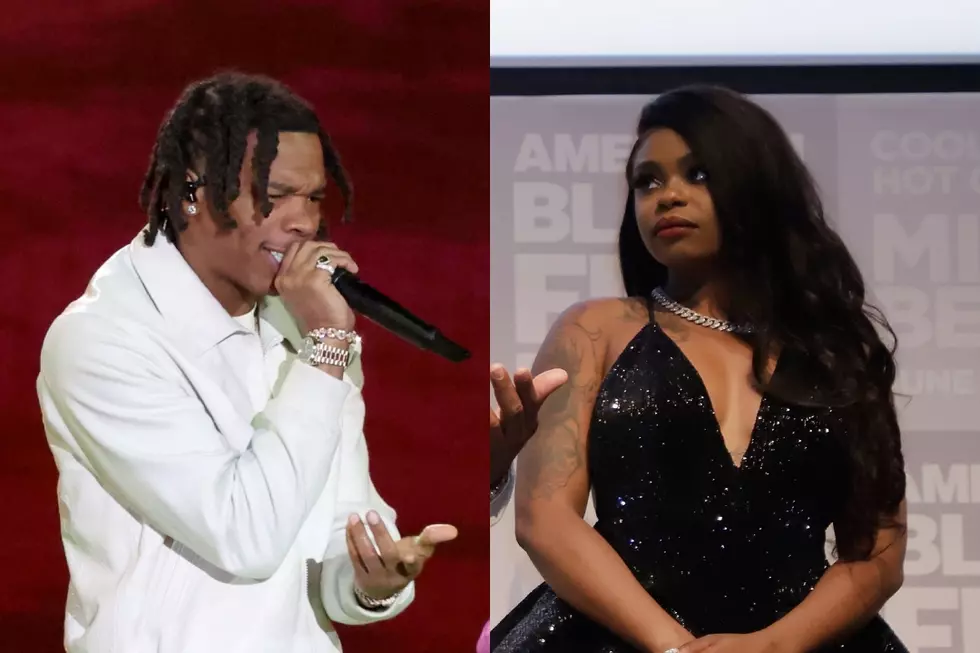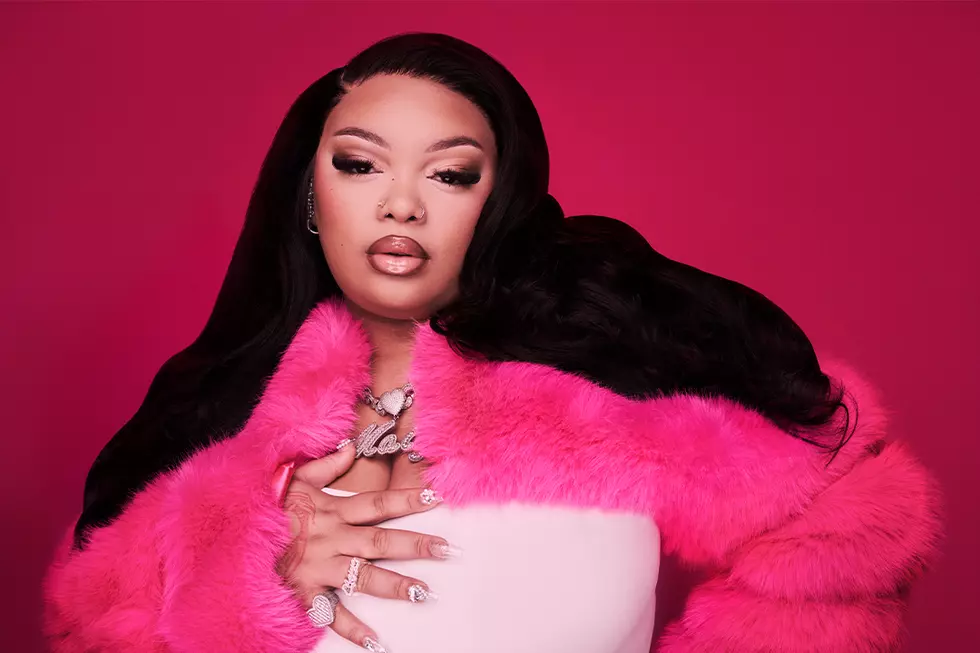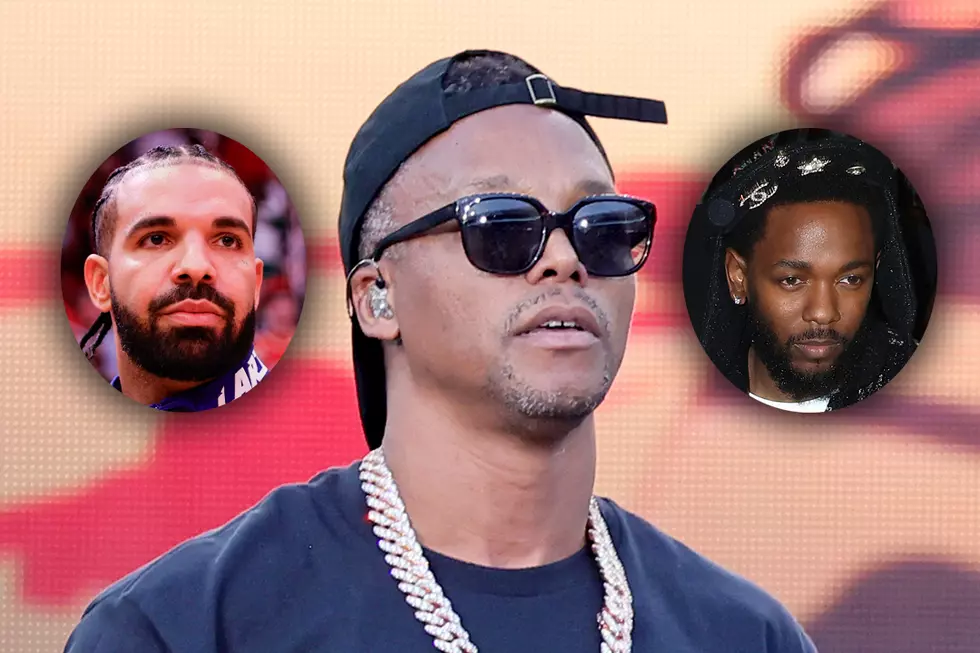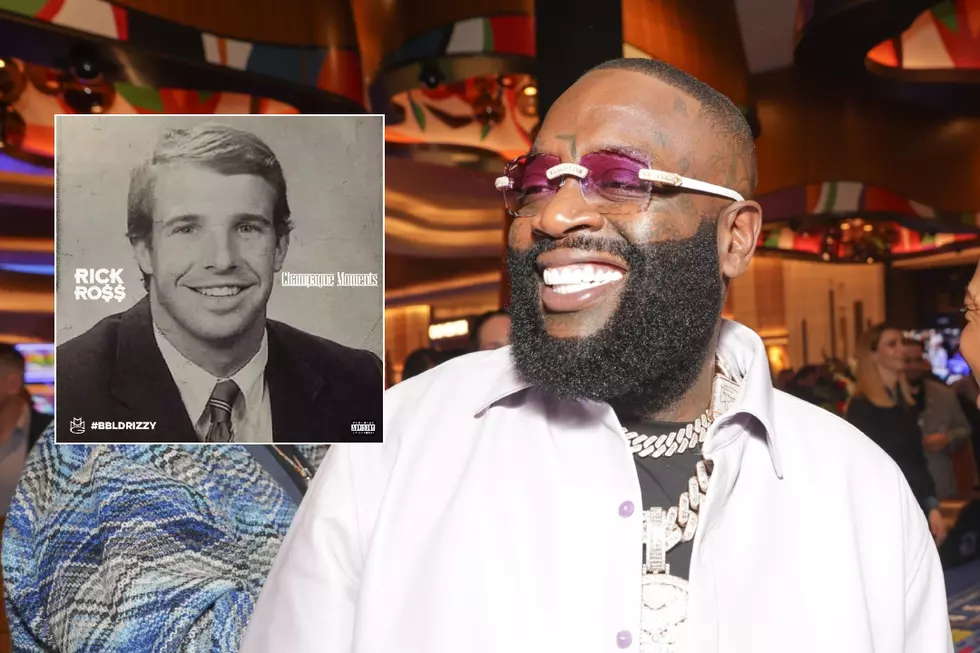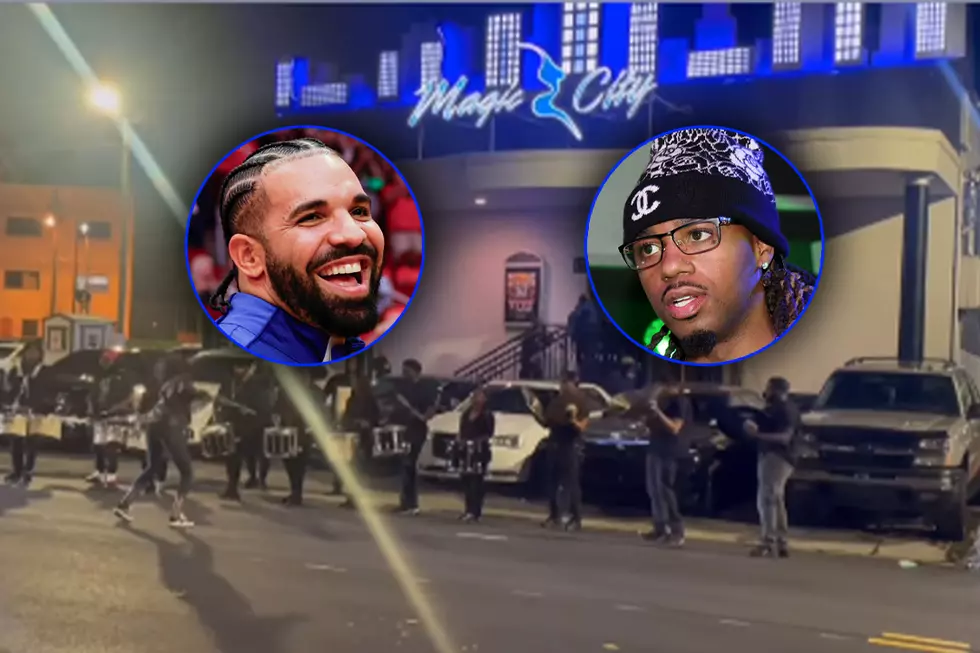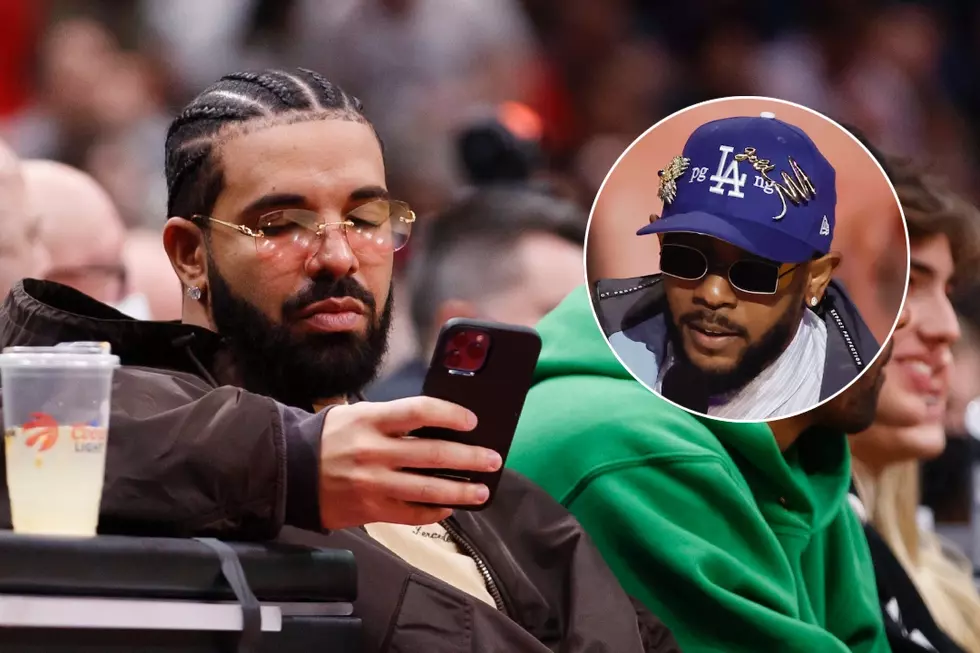Jazze Pha
Movin’ On Up
 Ladies and gentlemen: you've heard his tagline on some of hip-hop and R&B’s biggest hits. But do you really know Jazze Pha? From Memphis soul to #1 pop hits, this producer has done it all.
Ladies and gentlemen: you've heard his tagline on some of hip-hop and R&B’s biggest hits. But do you really know Jazze Pha? From Memphis soul to #1 pop hits, this producer has done it all.
For 37-year-old producer Phalon "Jazze Pha" Alexander, musical genius is a family affair. As the son of James Alexander, bassist for legendary ’60s and ’70s soul group the Bar-Kays, a career in music seemed like destiny. Born in Memphis, Tennessee, Jazze spent his childhood summers honing his musical skills on tour with his father, eventually signing his first record deal with Elektra Records in 1991. But after the deal went sour, the budding producer rebounded by linking with Suave House rapper Tela, who collaborated with Jazze in ’96 for his first single "Sho 'Nuff." The Southern smash was the start of a promising career for Jazze that has netted hits with artists such as Ludacris ("Area Codes"), Slick Rick ("Street Talkin'") and T.I. ("Let's Get Away"). The M-Town native took his career to the next level after signing Atlanta singer Ciara to his Sho ’Nuff label and producing her number one pop hit "1, 2 Step." Today, Jazze's trademark catchphrase—"Ladies and gentlemen, this is a Jazze Phizzle Productshizzle"—has become a mainstay in the industry. XXLMag.com caught up with one of the hardest working producers in music to discuss his family history, rise to fame and unreleased collaborative LP with Cee-Lo.
How much of a factor did having a musical father play in your success as a producer?
Just being the kind of guy he is—a politician, a leader—I just saw only one way to do it and that was through leadership. He grew up in a band and I lived with a leader. So in the summertime, I would keep my grades up just to be on the road with my dad. ’Cause I was living with my mom in California and I would fly back to Memphis, Tennessee, where I was born to be with my dad on tour.
How did you make the transition into becoming a producer?
Like around '91 when I signed my first record deal with Elektra. It was under the artist name Phalone, [which] is my birth name. Right after I got signed—it was like three months after the label went into a merger—the [C.E.O.] of the old label, she was really getting old and sick. They changed the cards and by the time my record came out, everybody was gone. So of course they cleaned the slate and I was dropped. Back then, it kind of devastated me a little bit. [Laughs].
Where you doing the majority of your own production back then?
I had players back then and they were producing some of the music. But I was producing most of it [and] I didn't even know it because I didn't really know about the whole mechanicals to producing a record. And my dad was like, it's about having cats in [the studio] that know how to play, but you tell them were to put it. That’s what guys were doing for me. So I took it a step further and I learned how to touch on the machines myself. I just played it by ear and now I can play just about anything.
So after you were dropped from Elektra, what did you do next?
I just started getting my relationships together locally. I was in Tennessee and I was getting my relationships tight with artists [and] one of them was Tela. He had a record deal with Suave House and we got together and laid some records. I ended up making his first single, which was called "Sho 'Nuff." So that was my first hit record. Then we dropped another record called "Tired of Ballin'," [and] that really just sparked my whole career [as] a producer.
Eventually, you ended up signing a production deal with Cash Money Records. How did that come about?
My man Greg Street introduced me to Baby. Mannie Fresh knew a lot about me, so I guess Baby asked Fresh what he thought about me coming to work with Cash Money. He was like, "Man, I like that dude. He's hot. He'll be a good addition to what we are doing." So Baby came to the studio and I guess he wanted to try me out with a record. He was like, "I want you to make me a record for this soundtrack." So we step out of the room, we going to get a sandwich, [and] he tells me what kind of song he wants. So he walks out [and] talks to Greg Street for a little while. So I don't know if he really thought I was going to do the record that day, but by the time he came back, the beat was down and I had a hook. He was only gone like 15 minutes. He was like, "How did you do that? Man, you’re dope. I want to do a 50 song deal with you, dog."
You’re known for your catchphrases like "ladies and gentlemen." How did you get to the level where artists want to share the spotlight on their own songs and videos?
I started off talking on a song, and then, of course, a lot of the songs were [artists’] first singles. [So] it went from me talking on records voluntarily, to the point where I wasn't even producing the damn record and people wanting me to talk on these records. They'd be like, "Hey, man, I want to pay you to talk on this record I'm fixing to smash." It's crazy because you didn't produce it, but it's still making you hot as a producer.
Some of your biggest hits have been in R&B and pop. But you've done your share of grimy hip-hop as well. Do you think people fail to recognize your diversity?
I mean, my style is tailor made. It kind of depends on what the artist is like. If I got Angie Stone, I'ma come in there and make the best song that I know how to make. If I'm in there with Nas, I'm going to make one of the craziest hip-hop records and get some of the stupidest elements that I can find you. A lot of people don't know that I produced "Street Talkin'" by Slick Rick, featuring Big Boi from OutKast. A lot of people don't know that I produced that record 'cause they don't know how wide my range goes. [People criticized] me for the Field Mob [song with] Ciara ["So What"] because my voice is so loud and clear on there. But there's a lot of records that I don't speak on that I did produce [that] people didn't know [about].
You and Cee-Lo were supposed to release a collaborative album, The Happy Hour, last year. What happened with the project?
The Cee-Lo thing kind of got paused because the whole Capitol [Records] building changed the guard. They didn't really get it like they was really supposed to get it. When they sent us out on the road, I'm like, "Dog, you set it up through a hole-in-the-wall-ass club. We going to play this club because the label asked us to do it, but the next time we pull up in a club like this, you are gonna hear from us." They just really downplayed the size of what we were putting together.
So Capitol underestimated the album's potential?
Yeah, and now they see Cee-Lo done went on the Grammy's, now they feel dumb as shit because we had something going on. Like, come on dude, this shit is crazy. Me and Cee-Lo [made] one of the best R&B/hip-hop albums ever. Nobody's fucking with it.
Will the album ever be released?
It probably will, but we just have to figure out how to do it because he's got so many obligations, and so do I. I'm not in a rush to do it because I'm about to be busier as a producer right now then I've ever been.
So what's the next phase in your career?
I'm getting into TV, doing broadband shorts of TV shows and doing some more things with my [production website], imnotsigned.com. I'ma get into some things with the kids, too—kidsnotsigned.com. There are a lot of kids wanting record deals and the best [way] to promote a child has always been through a kids network. We getting [a] cartoon network on lock [too]. Ted Turner is on the top of my hit list right now. I'm trying to hit him up every chance I get. By the time you talk to me next time, I will have a key to the Turner building.
More From XXL
